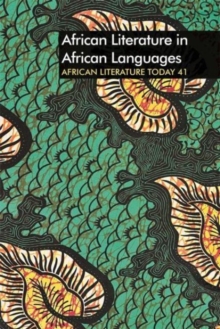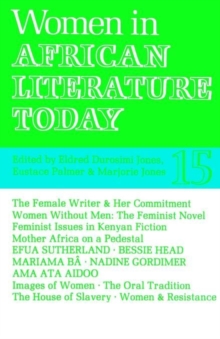
ALT 27 New Novels in African Literature Today PDF
Edited by Ernest N. Emenyonu
Part of the African Literature Today series
Description
This issue of African Literature Today focuses on new novels by emerging as well as established African novelists.
This is a seminal work that discusses the validity of the perception that the new generation of African novelists is remarkably different in vision, style, and worldview from the older generation. The contention is that the oldergeneration novelists who were too close to the colonial period in Africa had invariably made culture-conflict and little else their dominant thematic concern while the younger generation novelists are more versatile in their thematic preoccupations, and are more global in their vision and style. Do the facts in the novels justify and validate these claims? The 13 papers in this volume have been carefully selected to consider these issues.
Brenda Cooper a renowned literary scholar from Cape Town writes on Chimamanda Ngozi Adichie's Purple Hibiscus, while Charles Nnolim writes about Adichie's more recent novel Half of a Yellow Sun; Omar Sougou of Universite GastonBerger, Senegal discusses 'ambivalent inscriptions' in Buchi Emecheta's later novels; Clement Okafor of the University of Maryland, addresses the theme of 'racial memory' in Isidore Okpewho's Call Me By My Rightful Name, juxtaposed between the world of the old and the realities of the present. Joseph McLaren, Hofstra University, New York, discusses Ngugi's latest novel, Wizard of the Crow, while Machiko Oike, Hiroshima University, Japan looksat a new theme in African adolescent literature, 'youth in an era of HIV/AIDS'. There is abundant evidence of the contrasts and diversities which characterize the African novel not only geographically, but also ideologically andgenerationally.
ERNEST EMENYONU is Professor of the Department of Africana Studies University of Michigan-Flint.
Nigeria: HEBN
Information
-
Download - Immediately Available
- Format:PDF
- Pages:185 pages
- Publisher:Boydell & Brewer Ltd
- Publication Date:19/11/2009
- Category:
- ISBN:9781846156892
Information
-
Download - Immediately Available
- Format:PDF
- Pages:185 pages
- Publisher:Boydell & Brewer Ltd
- Publication Date:19/11/2009
- Category:
- ISBN:9781846156892










